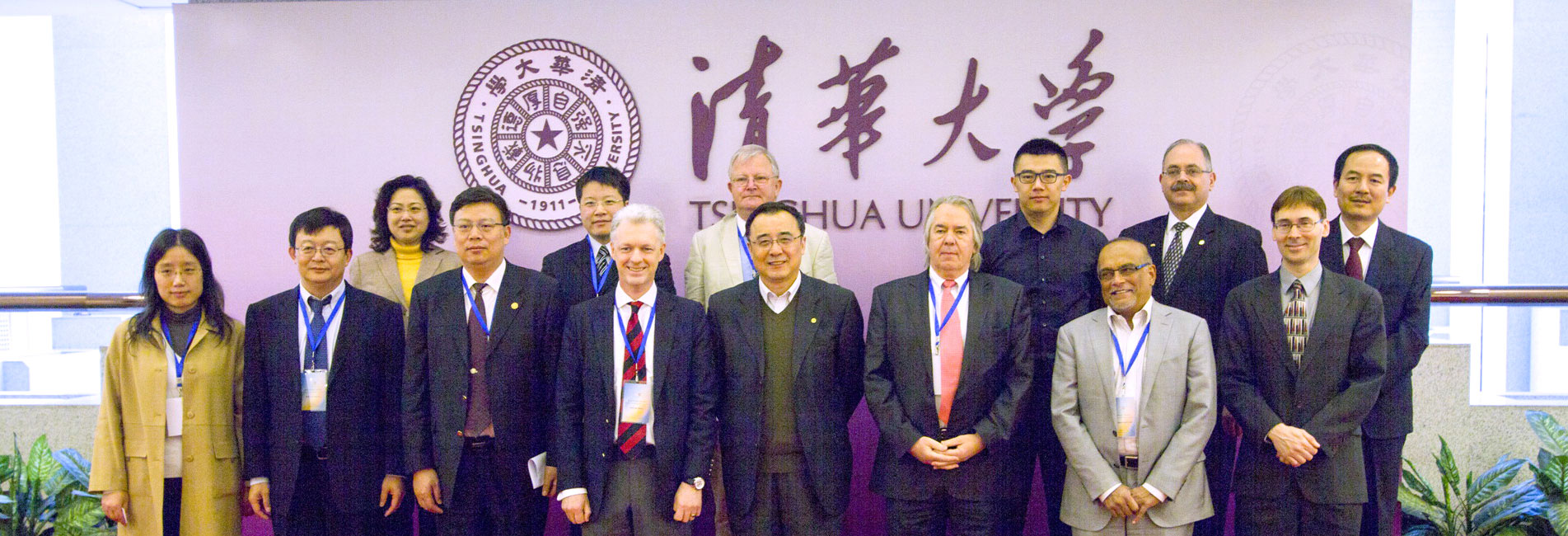On June 3-4, the Department of Precision Instrument held its annual teaching seminar for 2023. The seminar was attended by Yang Fan, the Deputy Director of the Academic Affairs Office, Wang Xiumei, the Vice Dean of Wefor College, Liu Qiang, the Head of the Department of Precision Instrument, Bai Benfeng, the Secretary of the Department's Party Committee, and more than 20 faculty members. The meeting was chaired by Wang Peng, the Deputy Head of the Department.
Firstly, Liu Qiang delivered the opening speech. He quoted instructions on teaching work from Qiu Yong, the Secretary of the University Party Committee, and Wang Xiqin, the President of the University, urging the faculty to value and dedicate themselves to teaching. In the context of university-wide teaching reform, he encouraged deep participation in curriculum reform, continuous promotion of exploratory and TIC courses, solidifying a high-quality textbook system, and building a high-level education and teaching team.
During the teaching seminar, Yang Fan presented on the theme of "Practice and Exploration of Undergraduate Education and Teaching Reform at Tsinghua University." He elaborated on the innovation and exploration of new-era talent training, such as "integrating the three components, blending general and specialized education," "lifelong learning, interests, and capabilities," and detailed the construction of colleges, the new training system, the development of specialized and general courses, comprehensive coverage of ideological and political education in courses, and the construction of textbooks and teaching resources.
Wang Xiumei introduced the talent training model of Wefor College, its founding background, and educational philosophy. She shared insights on creating "spaces for students' free development," the four-way joint training mechanism of "university, college, academy, and mentorship system," the construction of in-depth innovative practice courses, the closest teacher-student interaction model, and the "five educations in parallel" student training mechanism as distinctive features of the college.
Dong Yonggui, the leader of the Teaching Supervision Team of the Precision Instruments Department, gave a special report titled "The Knowledge Landscape in the Screen Age." He discussed hot topics such as the teaching supervision status in the Department of Precision Instruments, the rationality and correctness of teaching courseware and resource construction, and the connotation and teaching implementation measures of the instrument discipline.
At the request of Zhao Rong, the person in charge of the Weiyang Academy's Exploration Series Courses, Li Yu, the director of the Experimental Teaching Center of the Precision Instrumentation Department, delivered a special report on the construction and implementation process of Weiyang Academy's exploration courses, the "H"-shaped student course selection system and its advancement goals, the progress of TIC courses at Xian Academy, and the development of special course constructions and student training mechanisms that stimulate learning interests and adopt a tailored teaching approach.
In conclusion, Bai Benfeng summarized the current teaching situation of the Precision Instrumentation Department from three aspects: the direction and adaptation mechanism of continuous educational reform, the completeness of the curriculum system, and the exchange and cooperation mechanism between the academy and the Precision Instrumentation Department. He envisioned the future development of teaching work, pointing out that the Precision Instrumentation Department should continuously improve its competitiveness, actively cooperate with the academy, create teaching experts and masters, build high-quality and benchmark courses, and explore a teaching path with distinctive features of precision instrumentations.
During the exchange session, the participating teachers discussed various topics, including the construction of teaching materials for the Measurement & Control Technology and Instruments major, the training of young teachers, and the development of course and teaching resources. The discussions were open and candid, resulting in fruitful outcomes.

